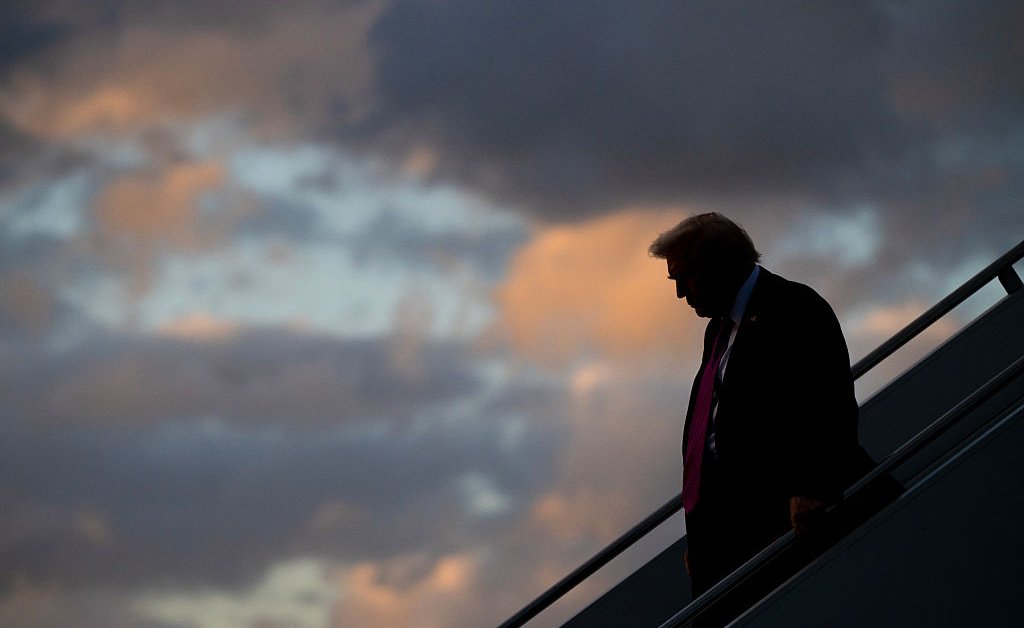Recent images of President Donald Trump in the Middle East have already been etched into history books. Trump flew first to Israel, where he addressed the Knesset in an emotional speech, and then to Egypt, where, amidst handshakes and smiles, he met with the leaders of the Arab and Muslim world. In both places, his interlocutors signed on to the peace plan, put forward by the American president, that ended, at least for now, a two-year long war and returned the living hostages to Israel.
The scenes in both countries testify both to the projection of American power and to the unconventional style of Trump’s diplomacy: personal, pragmatic, if hyperbolic. His leadership approach is very American. But it is also very Roman, and that is of more than antiquarian interest.
The Romans prized personal relationships both at home and abroad. “Friendships,” as the Romans called their ties with foreign leaders who acknowledged Rome’s power, were, like the legions, a tool for building an empire. What made the friendships work was trust. Rome’s friends believed that Rome had their back and that Rome would punish bad faith on their part. That confidence required constant personal attention.
Trump has devoted that attention to ending the war between Israel and Hamas. In addition to his own meetings with key Middle Eastern leaders, he has deployed two emissaries who are either family or “like family,” a gesture that the dynastically-inclined Romans would have appreciated.
Trump appointed Steve Witkoff, his longtime business and political associate as Special Emissary to the Middle East. And Trump leaned on his son-in-law, Jared Kushner to help broker the Abraham Accords in 2020, which saw separate normalization agreements signed between Israel and three Arab states: the United Arab Emirates, Bahrain, and Morocco.
Neither Witkoff nor Kushner are professional diplomats, but that unconventional choice is very Trumpian, since Trump himself is not a life-long politician. But their familial relationship with the president is an asset, especially in the Middle East, where people value personal ties and family no less than the Romans did. Among the other leaders whom Witkoff and Kushner met with personally were representatives of Hamas. The trust in—and fear of—the American president’s power, which the two men were able to convey, played a big role in sealing the deal.
So did the carrots and sticks that Trump offered key players, especially Israel, Hamas, Egypt, Qatar, and Turkey. Some of those “tools of persuasion” are in the public record—for example, the executive order granting Qatar an extraordinary American security guarantee. Or the threat to come down hard on Hamas for its unwillingness to keep its promise and disarm. Other carrots, such as the advanced American military technology that Turkey wants, have yet to be revealed.
The Romans were masters at using rewards and punishment to manage foreign states, from grants of citizenship to massacres of rebels. Although they tried to get their allies to do the heavy lifting, the Romans usually had to send in the legions in the end. Trump begs to differ. A central plank of his America First policy is to use allies to do the hardest jobs while keeping Americans out of harm’s way.
The Romans prided themselves on having pacified an empire and created peace, the famous Pax Romana, “the Roman peace.” Critics said it was the peace of the grave: “they make a desert and call it peace,” as one Roman writer imagined an enemy of his country complaining. From Britain to Carthage to Jerusalem, Rome’s victims would have agreed. Yet at their best, the Romans knew how to build a lasting and durable peace.
Trump is trying to do just that by wielding American power without sending in American troops. He intervened successfully in the conflict between India and Pakistan. He has failed so far in Ukraine, although he plans to give it another go. And most dramatically Trump has successfully brought an awful phase of the Israeli-Palestinian conflict to a close. For that he deserves enormous credit, and he surely has the gratitude of people on both sides. But it will escape neither Trump nor anyone else that the struggle is far from over.
The Arab and Muslim states that are supposed to rebuild and help govern Gaza are unlikely to take on the job while violence and disorder still reign there. The IDF is likely to be called back into duty, and the results will not be pretty. But at least the battered people of the Middle East have a breather.
Nations don’t have friends, they have interests. As British Foreign Secretary Lord Palmerston said, his country had no perpetual allies or enemies, only perpetual interests. Trump, the dealmaker, surely understands that his friendships abroad are only as good as their ability to advance America’s goals of a peaceful and prosperous international order.
The road to peace, as the Romans knew, was paved with war. If the truce that Trump has brokered makes that road shorter and less violent, then he will truly deserve a victory wreath.
The post To Understand Trump, Look to the Roman Empire appeared first on TIME.




